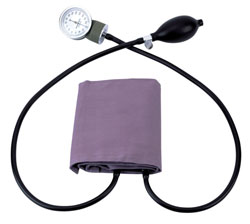Heart Healthy Updates
Alcohol raises stroke risk
 When you have stress in your life, you may feel like your blood pressure is rising by the moment. In order to lower stress, you may reach for comfort food, or perhaps a glass of wine. You may think that by drinking alcohol you are working to lower your blood pressure and prevent stress from causing a heart attack or stroke. However, a recent study published in the journal Stroke found that drinking alcohol can raise your risk of stroke in middle age. A long-term study of twins from Sweden found that those who drank the least when they were between 45 and 55 years old (less than half a drink each day) had the lowest incidence of stroke during a 43-year follow up. Compared to the lightest drinkers, those who drank the most alcohol (two or more alcoholic drinks a day) had an over one-third increased risk of stroke during the follow up. Also, the heaviest drinkers doubled their risk of stroke at around 60 to 75 years of age, compared to the lightest drinkers. Non-drinkers had a slightly higher stroke risk compared to the lightest drinkers. The researchers suggest that having a glass of wine or other alcohol-based drink every once in a while may be benefit heart health, but like many things in life, too much alcohol can be dangerous.
When you have stress in your life, you may feel like your blood pressure is rising by the moment. In order to lower stress, you may reach for comfort food, or perhaps a glass of wine. You may think that by drinking alcohol you are working to lower your blood pressure and prevent stress from causing a heart attack or stroke. However, a recent study published in the journal Stroke found that drinking alcohol can raise your risk of stroke in middle age. A long-term study of twins from Sweden found that those who drank the least when they were between 45 and 55 years old (less than half a drink each day) had the lowest incidence of stroke during a 43-year follow up. Compared to the lightest drinkers, those who drank the most alcohol (two or more alcoholic drinks a day) had an over one-third increased risk of stroke during the follow up. Also, the heaviest drinkers doubled their risk of stroke at around 60 to 75 years of age, compared to the lightest drinkers. Non-drinkers had a slightly higher stroke risk compared to the lightest drinkers. The researchers suggest that having a glass of wine or other alcohol-based drink every once in a while may be benefit heart health, but like many things in life, too much alcohol can be dangerous.
Eating Greek-style can lower your heart disease risk
 The Greek-style meal plan has gotten rave reviews in recent years for being heart-healthy. Those on a Greek-style meal plan eat more heart-healthy fats from plant sources (like avocado, olive oil, nuts, and seeds) and from fatty fish (like salmon, tuna, sardines, and mackerel). It also involves eating whole grains and drinking less alcohol. Those who follow a Greek-style eating plan have been found to have great health benefits. A recent study published in The American Journal of Cardiology showed that those who were most able to follow a Greek-style eating plan had the greatest in reduction in left ventricular mass (LV), which is a marker for heart disease risk. Researchers at the University of Miami Miller School of Medicine looked at about 2,000 people who were asked to follow a Greek-style eating plan. These people were watched to see how well they followed the plan. Over time, it was found that for every point a person received for sticking to the Greek-style eating plan, they had a 2 gram less LV mass. This showed that they were lowering their risk of heart disease. Therefore, it is suggested that you consume more heart-healthy fats in your everyday eating to help lower your risk of heart disease.
The Greek-style meal plan has gotten rave reviews in recent years for being heart-healthy. Those on a Greek-style meal plan eat more heart-healthy fats from plant sources (like avocado, olive oil, nuts, and seeds) and from fatty fish (like salmon, tuna, sardines, and mackerel). It also involves eating whole grains and drinking less alcohol. Those who follow a Greek-style eating plan have been found to have great health benefits. A recent study published in The American Journal of Cardiology showed that those who were most able to follow a Greek-style eating plan had the greatest in reduction in left ventricular mass (LV), which is a marker for heart disease risk. Researchers at the University of Miami Miller School of Medicine looked at about 2,000 people who were asked to follow a Greek-style eating plan. These people were watched to see how well they followed the plan. Over time, it was found that for every point a person received for sticking to the Greek-style eating plan, they had a 2 gram less LV mass. This showed that they were lowering their risk of heart disease. Therefore, it is suggested that you consume more heart-healthy fats in your everyday eating to help lower your risk of heart disease.
Belly fat may point to higher heart disease risk in postmenopausal women
 As women age, they go through a process known as menopause. It is during this time that hormone levels shift as the body moves away from its fertile period. With such hormone shifts, body fat also shifts. Many menopausal women notice that they have more belly fat at this time, and less around their hips and thighs. A recent study published in the journal Maturitas has found that because of this shift in body fat, those women who are post-menopausal require a different measurement system to predict their risk of heart disease. In younger women, body mass index (BMI) and waist measures have been found to be effective for predicting heart disease risk. In this group, a waist measure of more than 35 inches would normally reveal that a woman was at greater heart disease risk than women with lower waist measures. However, researchers in Korea have found that waist-to-hip ratio is a more effective way to predict heart disease risk in post-menopausal women. Tests such as the carotid intima-media thickness (CIMT) test, which measure the thickness of arteries, and brachial-ankle pulse wave velocity (baPWV), were done on both premenopausal and postmenopausal women. The test results in premenopausal women were linked with waist measures, BMI, and waist-to-hip ratio, while only waist-to-hip ratio linked to such test results in postmenopausal women. Bottom line: the waist-to-hip ratio measure is the best body measure to use to predict heart disease risk in postmenopausal women.
As women age, they go through a process known as menopause. It is during this time that hormone levels shift as the body moves away from its fertile period. With such hormone shifts, body fat also shifts. Many menopausal women notice that they have more belly fat at this time, and less around their hips and thighs. A recent study published in the journal Maturitas has found that because of this shift in body fat, those women who are post-menopausal require a different measurement system to predict their risk of heart disease. In younger women, body mass index (BMI) and waist measures have been found to be effective for predicting heart disease risk. In this group, a waist measure of more than 35 inches would normally reveal that a woman was at greater heart disease risk than women with lower waist measures. However, researchers in Korea have found that waist-to-hip ratio is a more effective way to predict heart disease risk in post-menopausal women. Tests such as the carotid intima-media thickness (CIMT) test, which measure the thickness of arteries, and brachial-ankle pulse wave velocity (baPWV), were done on both premenopausal and postmenopausal women. The test results in premenopausal women were linked with waist measures, BMI, and waist-to-hip ratio, while only waist-to-hip ratio linked to such test results in postmenopausal women. Bottom line: the waist-to-hip ratio measure is the best body measure to use to predict heart disease risk in postmenopausal women.
Red wine and grape juice may help you burn fat
 At the end of a stressful day, you may reach for a glass of wine to unwind. The antioxidant in red wine known as resveratrol has been shown to benefit blood pressure. This means that red wine can help relieve stress. A recent study published in The Journal of Nutritional Biochemistry has shown that red wine and its non-alcoholic counterpart, red grape juice, may also help to burn fat. Red wines and grape juices made from one of four kinds of Muscadine grapes have a compound called ellagic acid. Ellagic acid, when exposed to human liver and fat cells, was found to slow the growth of fat cells and prevent new fat cells from growing. This acid also helped lower the amount of fat that was stored in the liver cells. Although no human subjects have been studied for the benefits of ellagic acid, similar benefits have been found in mice. One group of mice was fed regular mouse chow that had 10 percent fat, while another group was fed mouse chow with 60 percent fat. Some of the mice on the high-fat regimen were given extracts of red grapes that were full of ellagic acid. The high-fat mice all had fatty liver and diabetes-like symptoms after ten weeks, but the high-fat mice that were given the extract had lower blood glucose levels and less fat stored in their liver. It is thought that the ellagic acid works by binding to the PPAR-alpha and PPAR-gamma receptors in the body that help digest fat and sugar. More studies need to be done to confirm that ellagic acid would work the same way in humans, but the results of research so far look promising.
At the end of a stressful day, you may reach for a glass of wine to unwind. The antioxidant in red wine known as resveratrol has been shown to benefit blood pressure. This means that red wine can help relieve stress. A recent study published in The Journal of Nutritional Biochemistry has shown that red wine and its non-alcoholic counterpart, red grape juice, may also help to burn fat. Red wines and grape juices made from one of four kinds of Muscadine grapes have a compound called ellagic acid. Ellagic acid, when exposed to human liver and fat cells, was found to slow the growth of fat cells and prevent new fat cells from growing. This acid also helped lower the amount of fat that was stored in the liver cells. Although no human subjects have been studied for the benefits of ellagic acid, similar benefits have been found in mice. One group of mice was fed regular mouse chow that had 10 percent fat, while another group was fed mouse chow with 60 percent fat. Some of the mice on the high-fat regimen were given extracts of red grapes that were full of ellagic acid. The high-fat mice all had fatty liver and diabetes-like symptoms after ten weeks, but the high-fat mice that were given the extract had lower blood glucose levels and less fat stored in their liver. It is thought that the ellagic acid works by binding to the PPAR-alpha and PPAR-gamma receptors in the body that help digest fat and sugar. More studies need to be done to confirm that ellagic acid would work the same way in humans, but the results of research so far look promising.
High blood pressure treatment delay could increase health risks
 When you are diagnosed with high blood pressure, your healthcare provider may first ask you to change your eating habits and get more active. These heart-healthy lifestyle changes may help you lower your blood pressure. But a new study published in the British Medical Journal has found that regular healthcare visits after being diagnosed are also crucial to preventing heart attack, stroke, or early death. A study of over 88,000 British medical patients with high blood pressure found that the vital point of heart health risk was a systolic blood pressure level (the top number of a blood pressure reading) of 150. Those with this blood pressure level were found to be at an increased risk of a heart disease event if they did not start aggressive medicine treatment within one and a half months after being diagnosed. Also, these patients had a higher risk of a heart health event if they did not receive a follow up on their blood pressure levels within three months to see if the medicines were working. Therefore, it is suggested that in addition to a heart-healthy eating plan and exercise, those with high blood pressure should visit their healthcare provider often. Be sure to ask him or her about medicines that may help you to control your blood pressure. These preventive measures may not only lower blood pressure levels, but could prevent a heart attack or stroke.
When you are diagnosed with high blood pressure, your healthcare provider may first ask you to change your eating habits and get more active. These heart-healthy lifestyle changes may help you lower your blood pressure. But a new study published in the British Medical Journal has found that regular healthcare visits after being diagnosed are also crucial to preventing heart attack, stroke, or early death. A study of over 88,000 British medical patients with high blood pressure found that the vital point of heart health risk was a systolic blood pressure level (the top number of a blood pressure reading) of 150. Those with this blood pressure level were found to be at an increased risk of a heart disease event if they did not start aggressive medicine treatment within one and a half months after being diagnosed. Also, these patients had a higher risk of a heart health event if they did not receive a follow up on their blood pressure levels within three months to see if the medicines were working. Therefore, it is suggested that in addition to a heart-healthy eating plan and exercise, those with high blood pressure should visit their healthcare provider often. Be sure to ask him or her about medicines that may help you to control your blood pressure. These preventive measures may not only lower blood pressure levels, but could prevent a heart attack or stroke.

